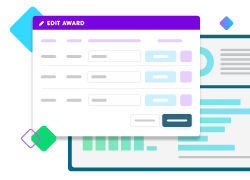What Are You Really Asking? A Checklist for Grantmakers

As a grantmaker, questions are your tools. They help you gather information, assess needs, measure outcomes, and build relationships with your grantees. But are you asking the right questions? And are you asking them in the right way?
In this blog post, we will share some insights and best practices from our recent webinar, Change Up Your Questions: Exploring and Shaping What You Ask Grantees and How You Ask Them, where Marshall Ginn of Capital Philanthropy discussed how to evaluate and improve your application questions. We will also give you seven questions to ask yourself about your questions, to make sure they are relevant, clear, respectful, and useful.
Why Change Up Your Questions?
Changing up your questions is not just about making cosmetic tweaks or updates. It’s about making sure that your questions align with your organizational values and your goals for the grantmaking program. It’s also about making sure that your questions reflect the current state of your community and the sector, and that they respect the diversity and expertise of your applicants.
Reviewing and amending your questions can also help you get better and more consistent answers, which can make your review process easier and more effective. By being clear about what you are looking for and why, you can avoid confusion, ambiguity, and guesswork. You can also avoid asking for information that you don’t need or use, which can save time and resources for both you and your grantees.
How to Change Up Your Questions
Changing up your questions can mean different things, depending on your context and needs. Here are some examples of what you can do to change up your questions:
- Add elements or dimensions: clarify, encourage more precise responses, or ask for more details
- Make small changes: tweak the language or edit questions to be simpler, shorter, or more specific
- Rewrite the whole thing: if a question feels outdated, irrelevant, or inconsistent, rewrite it to match your current priorities and expectations
- Take things out: if a question is not essential or does not help you make a decision, remove it from the application
- Move things around: if a question is better suited for a different stage of the process, such as a follow-up interview or a post-award communication, move it to that stage.
For some changes, you may need to communicate them to your community and explain the rationale behind them. You can also solicit feedback from your grantees and your reviewers to see how any of the changes are working and what else can be improved.
What To Ask as You Review Your Questions
To help you evaluate and improve your application, here are seven questions to ask yourself as you review each question. These questions are based on the framework Marshall shared in the webinar, which you can use as a guide for your own review process.
- Does this question reflect the mission of my organization? Make sure that your question is consistent with your values and your vision. This may be the first major interaction that your applicant has with your organization, so you want to make a good impression and convey what you stand for.
- How will I use this information? Be clear about the purpose and the value of each question. If you don’t have a good answer for how you will use the information, you may not need to ask the question.
- Is this question relevant? Make sure that your question reflects the current needs and realities of your community and the sector. If your question is outdated, inaccurate, or could be perceived as insensitive, you may need to change it or remove it.
- Can this question be interpreted in a different way? Avoid using regionalisms, jargon, or complex wording that can hinder understanding. Consider how different people with different backgrounds and experiences may interpret your question and try to make it as clear and inclusive as possible.
- What am I looking for with this question? Be specific about what kind of answer you are expecting and what criteria you will use to evaluate it. If you want numbers, ask for numbers. If you want examples, ask for examples. Provide a description or best practices as a second part to the question, if needed.
- Can this question be simplified? Look for ways to simplify your language and your structure to make your question easier to read and answer. Use standard writing best practices, such as short sentences and active voice. Break down complex or multi-part questions into smaller and simpler ones. And again, be mindful of jargon or highly technical phrases.
- Would this question be better asked in a follow-up interview or post-award communication? Consider the timing and the context of your question. Some questions may be more appropriate or effective at a later stage of the process, when you have more rapport and trust with your grantees. Some questions may also be more suitable for a conversation than a written response.
Creating a Meaningful and Measured Application
Questions are powerful tools for grantmakers, but they need to be used wisely and well. By asking yourself these seven questions about your questions, you can make sure that your application is aligned with your values, goals, and impact. You can also make your application process more efficient, respectful, and meaningful for both you and your grantees.
Are you looking for ways to update your application process? Check out our guide on how to manage your application pipeline, where you will find more tips and best practices on how to design and optimize your application process.
Manage your entire grantmaking workflow, from online grant applications through payments
Find out how Blackbaud Grantmaking™ fits your organization.

